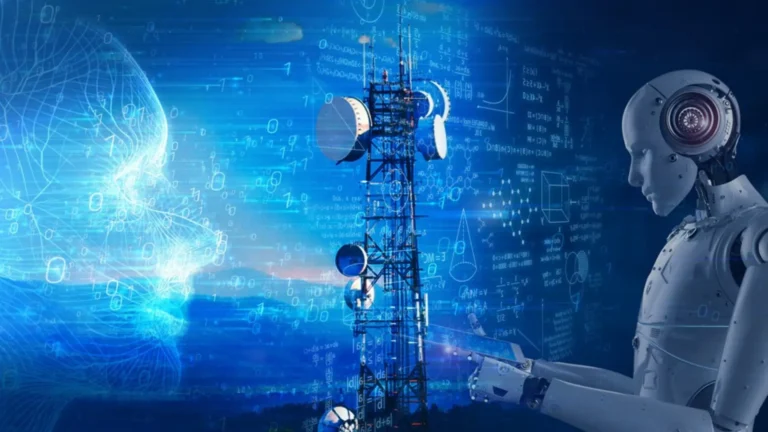
AI-Driven Emotional Intelligence
Artificial Intelligence (AI) is rapidly evolving, moving beyond simple task automation to encompass more nuanced and human-like capabilities. One of the most intriguing and potentially transformative areas of development is AI-driven emotional intelligence (EI). This emerging field aims to equip AI systems with the ability to understand, interpret, and respond to human emotions, opening up a new frontier in human-computer interaction.
Understanding Emotional Intelligence (EI)
Emotional intelligence, in humans, involves the ability to recognize, understand, and manage one’s own emotions, as well as the emotions of others. It encompasses skills like empathy, self-awareness, and social awareness. AI-driven EI seeks to replicate these abilities in machines, enabling them to:
- Recognize Emotions: Identify and interpret emotional cues from facial expressions, voice tonality, and text.
- Understand Emotions: Comprehend the underlying causes and implications of different emotions.
- Respond Appropriately: Adapt their behavior and communication to match the emotional context.
- Empathize: Demonstrate understanding and sensitivity to human feelings.
How AI is Achieving Emotional Intelligence
Several AI technologies are driving the development of EI:
- Facial Recognition and Analysis: AI algorithms can analyze facial expressions to detect emotions like happiness, sadness, anger, and surprise.
- Natural Language Processing (NLP): NLP enables AI to understand the emotional tone and sentiment expressed in text and speech.
- Voice Analysis: AI can analyze voice tonality, pitch, and rhythm to identify emotional cues.
- Machine Learning (ML): ML algorithms can learn from vast datasets of emotional data to improve their accuracy in recognizing and understanding emotions.
- Deep Learning: Deep learning models, such as neural networks, can process complex emotional data and identify subtle patterns.
Key Applications of AI-Driven Emotional Intelligence
- Customer Service: AI-powered chatbots and virtual assistants can provide more empathetic and personalized customer service.
- Healthcare: AI can assist in diagnosing mental health conditions, providing emotional support, and personalizing treatment plans.
- Education: AI-powered tutors can adapt their teaching methods based on students’ emotional states, improving engagement and learning outcomes.
- Human Resources: AI can assist in recruitment, performance evaluation, and employee well-being monitoring.
- Marketing and Advertising: AI can analyze consumer emotions to create more effective and engaging marketing campaigns.
- Entertainment: AI can generate emotionally resonant content, such as music, movies, and video games.
- Social Robotics: AI-powered robots can interact with humans in a more natural and empathetic way, providing companionship and assistance.
Benefits of AI-Driven Emotional Intelligence
- Improved Human-Computer Interaction: AI systems can provide more natural and intuitive interactions.
- Enhanced Customer Experiences: Businesses can provide more personalized and empathetic customer service.
- Better Healthcare Outcomes: AI can assist in diagnosing and treating mental health conditions.
- Increased Productivity: AI can automate tasks and provide emotional support, reducing stress and improving well-being.
- More Effective Communication: AI can help bridge communication gaps and improve understanding between individuals.
Ethical Considerations and Challenges
- Privacy Concerns: Collecting and analyzing emotional data raises privacy concerns.
- Bias and Discrimination: AI algorithms can perpetuate existing biases and lead to discriminatory outcomes.
- Manipulation and Deception: AI could be used to manipulate or deceive individuals by exploiting their emotions.
- Authenticity and Trust: Ensuring that AI systems are authentic and trustworthy is crucial.
- Emotional Labor: Questions about the emotional labor being performed by AI arise.
The Future of AI-Driven Emotional Intelligence
As AI technology continues to advance, we can expect to see even more sophisticated applications of EI. Future developments may include:
- Personalized Emotional Support Systems: AI systems that provide tailored emotional support and guidance.
- AI-Powered Therapy and Counseling: AI therapists that can provide personalized therapy and counseling sessions.
- Emotionally Intelligent Social Robots: Robots that can interact with humans in a more natural and empathetic way.
- AI-Driven Emotional Intelligence in Virtual Reality: AI systems that create immersive and emotionally engaging virtual reality experiences.
Conclusion
AI-driven emotional intelligence is a rapidly evolving field with the potential to transform human-computer interaction and improve various aspects of our lives. By addressing the ethical considerations and challenges, we can harness the power of AI to create a more empathetic and human-centered future.



